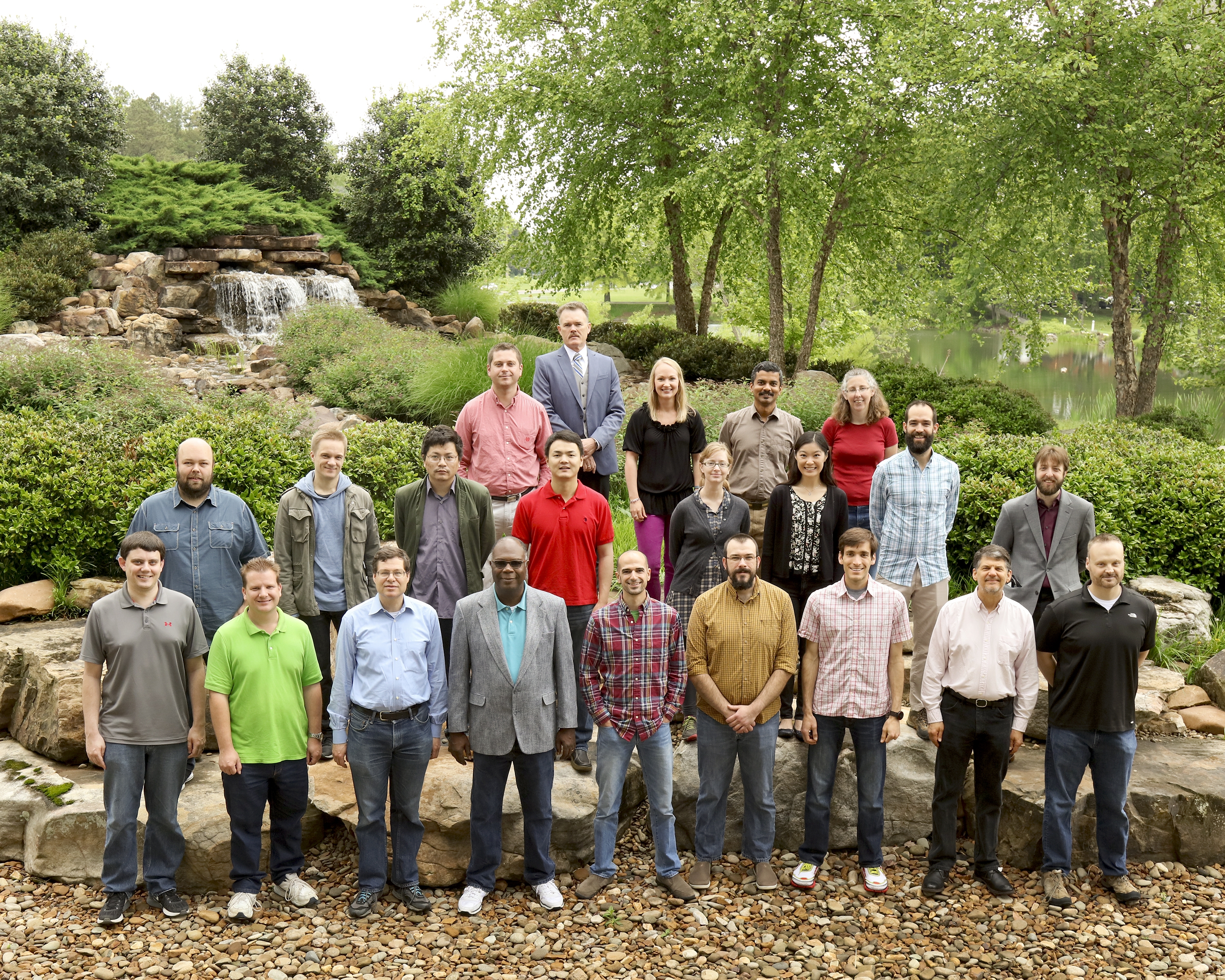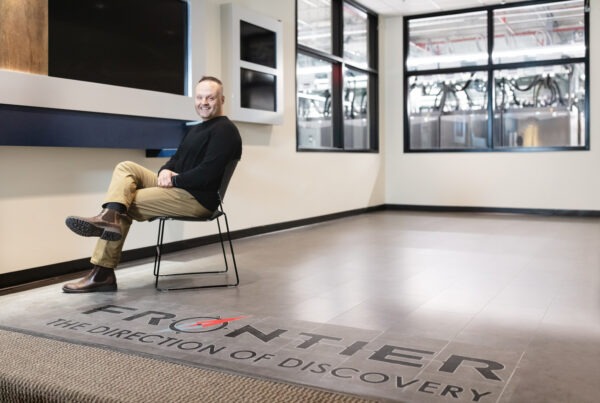The Oak Ridge Leadership Computing Facility (OLCF) at the US Department of Energy’s (DOE’s) Oak Ridge National Laboratory (ORNL) is charged with a broad task: to develop and apply computational science capabilities that address some of the world’s most pressing concerns. To accomplish this task, the OLCF needs staff members with world-class expertise in various scientific fields—ranging from specialized researchers to user support staff—all working to accelerate advances in our understanding of the physical world through high-performance computing (HPC).
Groups across ORNL have benefited from collaboration with postdoctoral associates, or postdocs, to aid in leading-edge computational science research and development. Through sponsorship from the DOE Advanced Scientific Computing Research (ASCR) program, postdocs from various scientific domains work alongside OLCF staff to reach important mission milestones while gaining valuable research experience and exploring career opportunities related to HPC. Since 2016, the Computational Scientists for Energy Environment and National Security (CSEEN) program has sponsored postdoc appointments at DOE computing facilities at Argonne, Lawrence Berkeley, and Oak Ridge National Laboratories. Though the postdocs appointed to the OLCF perform research and tasks within the realm of HPC, they come from domains such as chemistry, nuclear physics, and astrophysics.
“These appointments expose domain scientists to what it means to do software development for large systems such as Titan and how that experience can benefit research within their respective domains,” said Tjerk Straatsma, who leads the OLCF’s Scientific Computing Group and oversees the group’s postdocs. Titan, OLCF’s 27-petaflop Cray XK7, is one of the world’s most powerful supercomputers.
As their appointments end, the first eight postdocs at the OLCF look forward to new opportunities in research, academia, and industry. For Amelia Fitzsimmons, a CSEEN postdoc who came to ORNL after completing a PhD in chemistry, this appointment means transferring what she has learned about HPC to academia.
“I will be an assistant chemistry professor at Lakeland University in Wisconsin. One of the most exciting parts of this position will be using the knowledge I gained here to build a small HPC cluster for my students to work on,” she said. “I have so many more skills now as a researcher than I did before starting this postdoc appointment. I feel confident enough now that I can say ‘Yes, I can build my own HPC cluster.’”
Such knowledge and familiarity with HPC systems stem from the relationship between CSEEN postdocs and the Center for Accelerated Application Readiness (CAAR), a collaboration of application development teams and staff from the Scientific Computing Group to prepare for Summit, the OLCF’s next supercomputer set to launch in late 2018.
“For the postdocs, the CSEEN program provides an opportunity to work alongside domain scientists who know the OLCF resources well and can provide professional mentorship,” Straatsma said. “In turn, postdocs play a vital role in preparing a number of applications for our next architecture, Summit.”
For Micah Schuster, a former CSEEN postdoc now serving as an assistant professor in the Department of Computer Science and Networking at Wentworth Institute of Technology in Boston, the experience involved many hours helping to get Summit launch-ready. With an academic background in computational science and nuclear physics, Schuster implemented nuclear physics algorithms to be processed by Summit’s GPUs. Schuster credits his time performing hands-on work with the OLCF’s world-class resources as an important milestone on his career path.
“Without my experience working with the Scientific Computing Group, and specifically under Gustav Jansen, I don’t believe that I would have had the ability to succeed in a computer science department,” Schuster said.
Participation in the CAAR initiative tasked former CSEEN postdoc Kalyana Gottiparthi, now a senior research scientist at United Technologies Research Center, with uncovering bottlenecks within codes that allow supercomputers to simulate dynamics of reactive flows.
“Our work, being novel and challenging, is of great interest to the research community and attracted attention of several researchers. I interacted with other domain scientists and was able to showcase our work in conferences,” Gottiparthi said. “These interactions enabled me to procure a permanent research position.”
Given their expertise in domain sciences outside of HPC, CSEEN graduates gain momentum on a variety of career tracks because of the program’s promotion of mentorship with both domain scientists and HPC experts.
“The work that you do and the connections that you make while working as a CSEEN postdoc give you the freedom to continue to work in your field while also allowing you to expand your skills and connections into the HPC world,” Schuster said. “This ultimately allows you to choose where to head in your career, whether that’s working at a lab, in academia, or in industry.”
Though the postdocs who began their tenure with the OLCF in 2016 are moving into different careers across the globe, the collaborations fostered during their OLCF appointments will keep them connected to their ORNL colleagues.
“While our CSEEN post-docs are resident at the OLCF for only 2 years, the opportunities for networking and collaboration within the OLCF, more broadly at ORNL, and within their application communities have forged collaborations that will live beyond their OLCF appointments,” said Judy Hill, a computational scientist in the Scientific Computing Group and mentor of a CSEEN postdoc. “A successful outcome of this program is to create the next generation of computational scientists who will return as OLCF users of Summit.”
Oak Ridge National Laboratory is supported by the U.S. Department of Energy’s Office of Science. The single largest supporter of basic research in the physical sciences in the United States, the Office of Science is working to address some of the most pressing challenges of our time. For more information, please visit science.energy.gov.






